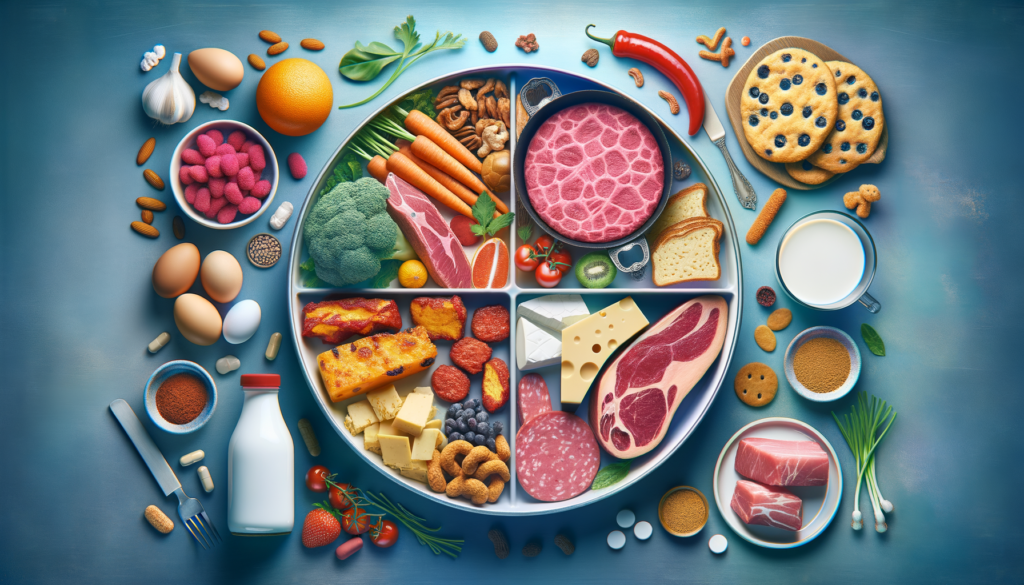The Technology Blog

Surprising Foods That Worsen Plaque Psoriasis in the UK
Introduction to Plaque Psoriasis and Diet
Plaque psoriasis is a chronic autoimmune condition characterized by red, scaly patches on the skin. While genetics and immune system factors play a significant role in its development, diet can also influence the severity of symptoms. Understanding the relationship between food and psoriasis is crucial for effective management. This article explores some surprising foods that can exacerbate plaque psoriasis, focusing on dietary choices in the UK.
The Impact of Dairy Products on Psoriasis
Dairy products are a staple in many diets, but they can be problematic for individuals with plaque psoriasis. Dairy contains casein and whey, proteins that can trigger inflammation in some people. Inflammation is a key factor in psoriasis flare-ups, making it essential to monitor dairy intake.
Several studies suggest that reducing dairy consumption can lead to a decrease in psoriasis symptoms. This is because dairy can stimulate the production of arachidonic acid, a compound linked to inflammation. For those with lactose intolerance, the issue is compounded by gastrointestinal distress, which can also contribute to systemic inflammation.
Alternatives to dairy products include plant-based options such as almond milk, soy milk, and oat milk. These alternatives not only provide essential nutrients but also reduce the risk of triggering psoriasis symptoms. Incorporating these substitutes can be a beneficial strategy for managing the condition.
Red Meat and Its Role in Inflammation
Red meat is another food group that can worsen plaque psoriasis. It is high in saturated fats and arachidonic acid, both of which can increase inflammation levels in the body. The consumption of red meat has been linked to a higher risk of developing inflammatory conditions, including psoriasis.
In the UK, where red meat is a common dietary component, individuals with psoriasis might consider reducing their intake. Opting for leaner meats like chicken or turkey, or plant-based proteins like beans and lentils, can help manage inflammation. These alternatives are lower in saturated fats and provide essential nutrients without exacerbating psoriasis symptoms.
Furthermore, the method of cooking red meat can also impact its inflammatory potential. Grilling or frying meat at high temperatures can produce advanced glycation end products (AGEs), which are compounds that promote inflammation. Therefore, choosing healthier cooking methods, such as baking or steaming, can make a difference.
The Hidden Dangers of Processed Foods and Alcohol
Processed foods and alcohol are often overlooked as contributors to psoriasis flare-ups. Processed foods typically contain high levels of sugar, salt, and unhealthy fats, all of which can trigger inflammation. These ingredients can exacerbate psoriasis by promoting an inflammatory response in the body.
Alcohol, on the other hand, can affect the immune system and liver function, both of which are crucial in managing psoriasis. Excessive alcohol consumption can lead to dehydration and disrupt the balance of nutrients, worsening psoriasis symptoms. In the UK, where social drinking is common, moderation is key.
To mitigate the impact of processed foods and alcohol, individuals can focus on a diet rich in whole foods. Fresh fruits, vegetables, whole grains, and lean proteins provide essential nutrients and antioxidants that support overall health and reduce inflammation. Additionally, limiting alcohol intake and opting for healthier beverage choices can support better management of psoriasis.
Conclusion: Mindful Eating for Better Psoriasis Management
Managing plaque psoriasis involves a comprehensive approach that includes dietary considerations. By understanding how certain foods can exacerbate symptoms, individuals can make informed choices that support their health. Reducing the intake of dairy products, red meat, processed foods, and alcohol can significantly improve the quality of life for those living with psoriasis.
In the UK, where these foods are prevalent, awareness and mindfulness are crucial. By adopting a diet rich in anti-inflammatory foods and making healthier lifestyle choices, individuals can effectively manage their condition and enjoy a better quality of life.









